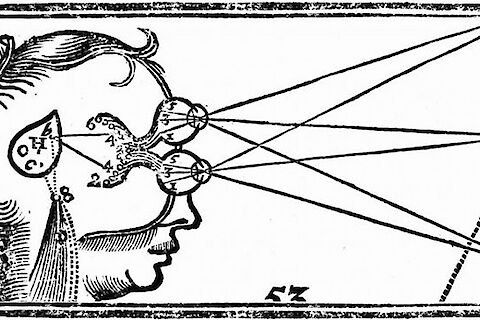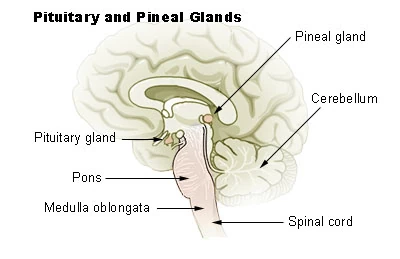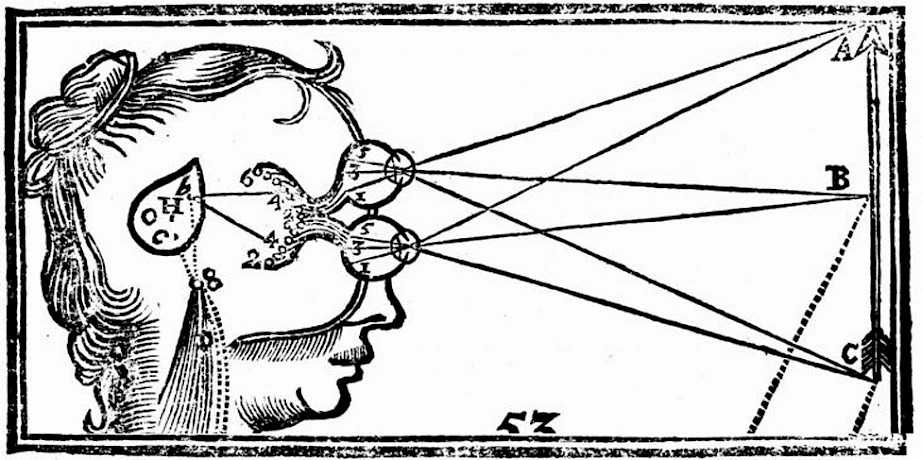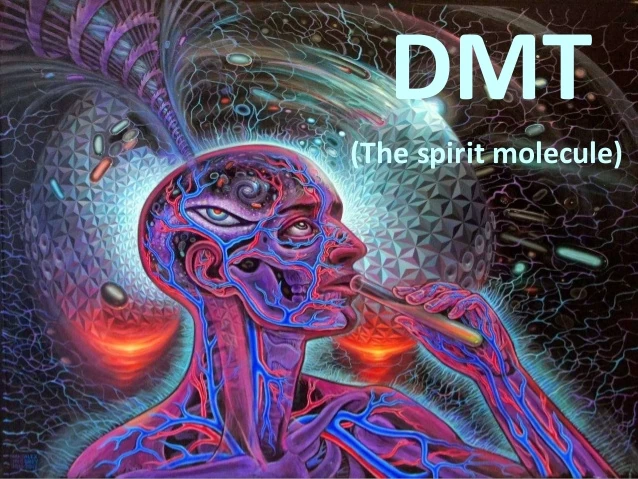

The pineal gland and psychical abilities
Over the last few years, I have been very lucky to be able to host public paranormal investigations. One of the main things I have noticed during this time is that around 80% of the people who attend these investigations are female. I have completely made this figure up, but it doesn’t change the fact that week in and week out, the majority of the participants are female. Some tours have been completely female. I have never hosted an all-male investigation. While I am sure they have happened in the past, I just haven’t hosted one. When I look at the stats of the profiles of the people who follow my Facebook page at the time of writing this article, 69% are females. This I am not making up, this is a fact! So why is it that females are so strongly drawn to the paranormal?

I have seen many conversations with people asking the question if females are more sensitive to the paranormal and perhaps that there are more female psychic mediums than men. I don't have official statistics, but it seems to be an unofficial general thought among the paranormal community. There are a lot of different theories from people as to why this may be. Personally, I have my own take on this. I believe it may have something to do with the pineal gland. This is not ‘proven’, it is really just my thoughts on a possible explanation.
What is the pineal gland?
The pineal gland is a pea-shaped mass of tissue that sits behind the third ventricle of the brain. It is also considered in spiritual circles to be ‘the third eye’. Its primary function is to produce Melatonin which signals the body when it is time to sleep. This also has an effect on female reproductive hormones – as does the adjacent pituitary gland. I have written about the pineal gland in the past and its relationship with the close pituitary gland pondering if this relationship could have some kind of correlation to females and psychic abilities. It is long debated that it seems women are more inclined to have psychic abilities, and perhaps this plays some part in that.

Image Source: Public domain
How do different cultures view the pineal gland?
For Buddhists, the pineal is a symbol of spiritual awakening.
In Hinduism, the pineal is the seat of intuition and clairvoyance.
For Taoists, the pineal is the mind’s eye or heavenly eye.
Ancient Greeks believed the pineal was our connection to thought itself.
In ancient Egypt, we find numerous references to the third eye and the pineal region, in particular, the Eye of Ra.

“Seat of the rational soul.” A sketch by Descartes.
The pineal gland is thought by many different cultures over the last few centuries to be the doorway as such between our physical 3D world, and the psychic dimension which sits beyond it. One speculation I am hearing more and more of today from the spiritual community is a possible connection between the pineal gland and DMT and that DMT in some way is the 'key' that helps to unlock that door.
Does the pineal gland secrete DMT?
It has also been speculated within the spiritual community that the pineal gland is responsible for producing DMT otherwise known as dimethyltryptamine. It is referred to in these circles as the 'spirit hormone'. This is a natural biochemical substance that invokes experiences that are similar to near-death experiences. As plants contain DMT, some cultures use this as a part of spiritually awakening ceremonies and to aid in expanding a person’s consciousness. It is thought by some that the pineal gland secretes DMT during birth and near death which is offered as one of the explanations for an altered state of consciousness during a near-death experience. It is also thought to secrete DMT during sleep. This in part again could offer some sort of correlation to pre-cognitive dreams. While this is speculation, Psychedelic researcher David E. Nichols who is an adjunct professor of chemical biology and medicinal chemistry at the University of North Carolina has said it is impossible. In his paper for Psychopharmacology he states
The pineal gland has a romantic history, from pharaonic Egypt, where it was equated with the eye of Horus, through various religious traditions, where it was considered the seat of the soul, the third eye, etc. Recent incarnations of these notions have suggested that N,N-dimethyltryptamine is secreted by the pineal gland at birth, during dreaming, and at near death to produce out of body experiences. Scientific evidence, however, is not consistent with these ideas. The adult pineal gland weighs less than 0.2 g, and its principal function is to produce about 30 µg per day of melatonin, a hormone that regulates circadian rhythm through very high affinity interactions with melatonin receptors. It is clear that very minute concentrations of N,N-dimethyltryptamine have been detected in the brain, but they are not sufficient to produce psychoactive effects. Alternative explanations are presented to explain how stress and near death can produce altered states of consciousness without invoking the intermediacy of N,N-dimethyltryptamine.
David E. Nichols

Image Source: https://www.slideshare.net/maryamyasser372/dmt-final-55779032
Calcification of the pineal gland
As we age, the pineal gland begins to calcify. It is said by some that fluoride is the cause of this however there is not enough solid peer-reviewed research to back this up. The gland itself though does in fact calcify from the onset of puberty and as get we older. A lot of spiritual circles believe that it is this calcification that is blocking everyday people from unlocking their full potential. Let's explore this theory a little deeper. When you speak to a lot of sensitive people, they comment that anyone is capable of psychic development. Often it is speculated that when you are a child, you are the most open to the spiritual world. As you grow and learn about the world, the invisible friends that you spoke to as a child disappear as you start to learn the 'truth' about the world. We often tell our kids 'there is no such thing as ghosts' so that they won't be scared. If they are perhaps talking to someone that isn't there we quickly put it to the side and tell them it is just their imagination. It is thought that this is one of the reasons that as a child gets older, they slowly start to lose this openness to the spiritual world. If the pineal gland is in some way a contributing factor to psychic abilities, the fact that it calcifies as we get older could be a link.
It would be interesting to see some actual studies to back up some of these claims. It would be particularly interesting to see a study of individuals who attempt to decalcify their pineal gland and not only see CT scans to see the progress of the physical development, but to also see if this in part has any effect on the potential psychical abilities. The pineal gland itself is something that has almost been worshipped for centuries and is seen not only just in one but several cultures as being the pivotal link to spiritual enlightenment.
This is all speculation of course, but certainly worth thinking about. I will be delving a little further into the hormonal side of things to look at a female's hormones more in-depth. A lot of poltergeist cases report telekinesis-like abilities which are attributed to pre-teen girls who are going through a hormonal transition. I have even had some people contact me to tell me that they have noticed similar occurrences happening around women entering menopause - an equally significant hormonal milestone for a woman. Do our hormones contribute to psychical abilities? Some people tell me, yes, and some tell me no. It is going to be tricky weather to navigate as a lot of people are on different medications that can change a person's hormone levels, but I feel it is at least worth asking the question and exploring. Look out for a survey over the coming weeks that will be completely anonymous. It won't give us definitive answers, but it may give us a clue about where to direct our research.
What do you think? Do you think the pineal gland plays a part in psychic abilities? Do you believe a female's hormones can play a part?
If you enjoy LLIFS, consider buying me a book (otherwise known as buy me a coffee but I don't drink coffee and I LOVE books). Your donation helps to fund the LLIFS website so everyone can continue to access great paranormal content and resources for FREE!

Top pages with similar subjects
Don't forget to follow the Facebook page for regular updates
Join the mailing list to receive weekly updates of NEW articles. Never miss an article again!
Buy the latest and past issues Haunted Magazine
Check out the books written by LLIFS
Comments
-
Joseph Kapusta 5 years ago
I understand the opinion of Professor NIchols. A skeptical opinion in the absence of empirical facts is warranted and needed to maintain a healthy balance of analysis. The possibilities produced from various hypotheses however are intriguing on this topic. As always, I tend to look to nature for comparisons. In this case I reference data about cats. Commonly referred to thru the ages as a spirit animal, cats have gained a reputation in our homes for seeing things we cannot. Of course, not all strange unseen things should be attributed to the paranormal, but if you have any experience with cats, you will inevitably experience them looking up at the ceiling and even moving their gazed focus on something that is invisible to our eyesight. There are explanations for this such as their ability to hear things in frequencies and see well in low light conditions that we humans cannot. They also possess an ability to see in the UV spectrum. Finally, to top off those abilities is testing that shows cats produce more dimethyl-tryptamine than humans do, suggesting their waking state could be more dream-like and thus connected to a reality we humans cannot perceive. Cats will also approach some people and totally avoid others. This perception is thought to be an olfactory one linked to hormonal sensing. One thing lacking from these studies is a differentiation between male and female cats. It would be interesting to link that data with your research results.